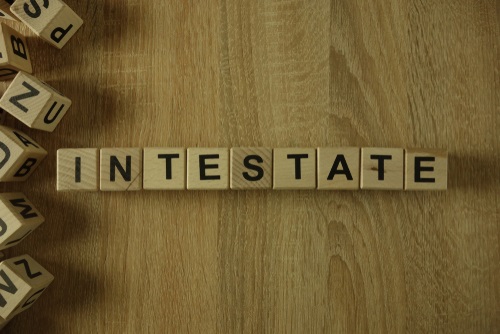How the parents of Caroline Flack, who died without a Will, are making sure her money goes to her favourite charities
Although TV presenter Caroline Flack did not make a Will, her grieving parents are doing their upmost to ensure the charities they know she cared about still benefit in the most tax efficient way from her £827,000 estate.
Caroline's mother, Christine, said recently: "We will wisely use the money to help good causes that Caroline was passionate about."
Whilst it is always better to leave a Will to ensure those you love - and the charities you care about - inherit from your estate as you wish, there are still steps that those left behind can take to 'vary the estate'.
What is intestacy?
When someone dies without a Will, a strict set of statutory rules, known as intestacy, kick in determining who can inherit and in what order.
Because Caroline Flack, who took her own life in February this year, was unmarried and had no children, her parents each inherited a half share of her estate after debts and Inheritance Tax (IHT) had been paid.
Is it still possible to give to charity and save on Inheritance Tax?
Yes - when you inherit an estate, and want to add, change or increase donations made to charity, it is still possible to do so using something called a deed of variation.
However, it's complicated and specialist legal advice is highly advisable.
What does a deed of variation do?
This formal legal document must be entered into within two years of the person's death.
In Caroline Flack's case, it would be signed by both her parents and forwarded to the charities concerned.
This then formally varies their 50% shares enabling charities to inherit. Without it, Ms Flack's parents would be gifting funds out of their own estates, something which would be taken into account for their own tax purposes.
A deed of variation would mean:
- Any charitable gifts would not be treated as part of Ms Flack's taxable estate;
- Tax would not be payable on the amount given to charities as they are deemed 'exempt beneficiaries' for the purpose of IHT;
- The IHT on the rest of the estate could be reduced from 40% to 36%, a massive saving, as long as at least 10% of the net estate is left to charity.
Lesson to be learned - make a Will
By making a Will, Caroline Flack could have made sure her favourite charities benefited from her estate after her death. She could also have named other loved ones, friends and family as beneficiaries.
It would also have given her the chance to consider potential Inheritance Tax liability as gifting money to charity in your Will can reduce your IHT bill and in some rare cases, get rid of it altogether.
Click here to read what we have written about this recently.
Get in touch
Wards Solicitors' specialist Wills, Probate and Mental Capacity lawyers can answer all your questions about making or updating a Will as well as estate planning for the future.
Please contact our Wills, Probate and Mental Capacity team for help and information.
You can find your local Wards Solicitors' office here.
Posted by: Tom Scoffham


